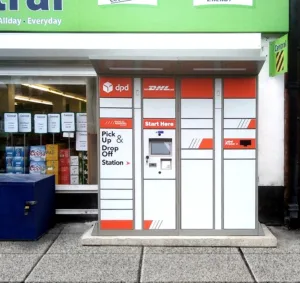By Enda Breslin, EMEA GM, ShipBob
As we fast approach peak season, for retail and small businesses who continue to navigate the ongoing supply chain issues, the recent fallout between Amazon and Visa couldn’t have come at a worse time.
With shoppers up and down the country looking for online deals and buying gifts early to avoid delays, this latest example of large organisations taking key decisions that impact smaller companies serves as a cautionary tale for brands.
With orders delayed, products stuck in shipping ports and driver shortages continuing to impact companies globally. The standoff between Amazon and Visa could now exacerbate the problem further with Amazon sellers hit hardest, unable to sell to their customers in a crucial time of year for retail.
Without diversification, small brands are tied to a mono channel sales strategy, which risks exacerbating issues like this that are outside of their control. DTC brands used to put a lot of stock in Amazon’s delivery times and payment portal, but today there is an increasing number of alternative marketplaces and fulfilment/ payment partners. Brands need to learn to distinguish between each and diversify to ensure they find the best blend for their business.
How have we got here?
Following Brexit, credit card fees were no longer capped under EU legislation and once the UK had officially left the block, Visa raised its prices meaning a higher cost for Amazon when processing payments.
These higher fees can be felt across the retail industry and serves as a reminder to smaller brands that if they place their sole focus on one sales channel like Amazon, company fall outs like this trickle down to their business leaving them with little flexibility and often shouldering the cost.
This move by Amazon, to reduce the already limited payment methods on the platform, will drive more entrepreneurs and DTC brands away from the marketplace as they seek to build out their own DTC presence on owned web stores. This will allow them to capture the largest possible audience whilst using payment methods loved and frequently used by their consumers.
Take PayPal and Klarna as an example, both companies are hugely popular in the payment space but aren’t available on Amazon, so whilst it may be convenient to find a product on Amazon, paying for it becomes a whole separate issue and ultimately it’s the brands and consumers who lose out.
ShipBob’s focus is on empowering retailers, brands and entrepreneurs to succeed, which is why we partner with all webstores, marketplaces and thereby accept all payment methods. By giving our customers more choice and flexibility they are better placed to grow their business and reach their own goals.
Whilst this is mainly a payment dispute between Amazon and Visa, it highlights why small brands need to be more independent and not be over reliant on any one sales channel.
Large retailers are often impacted more heavily by supply chain issues as large stock orders are delayed and held up in ports, the West Coast of America serves as a good example, but this quickly begins to impact smaller brands who are more reliant on a steady stream of revenue and stock turnover.
Agility is Key:
However, smaller brands do have options and can leverage the agility afforded to them due to their size. By diversifying and utilising smaller national and international carrier partners, that can guarantee on time product deliveries, smaller brands are provided with peace of mind they can side step any major supply chain issues, payment fall outs and are able to meet fulfilment needs as we enter peak season.
Companies like ShipBob who operate over 30 global fulfilment centres, offer brands instant access to international networks and tech to help brands track inventory, fulfil orders and identify the best carriers to deliver stock quickly are better placed to support retailers in these scenarios.
Working with a data focused, tech enabled DTC fulfilment company, can also provide a business with more flexibility. By launching smaller local fulfilment centres rather than being overly reliant on a larger site, companies like ShipBob are better placed to aid retailers in times of crisis. This means products are never too far away from the end consumer and means smaller retailers are afforded plenty of contingencies should issues arise when transporting goods from one site to another.
When the dust settles we expect Amazon and Visa to resolve their issues, but this situation has given a lot of brands food for thought for what lies ahead.
Mitigating Risk:
The key takeaway from this for the smaller brands is to incorporate a business contingency or continuity plan. By partnering with different suppliers you can reduce the risk of inventory shortage, and payments disputes so you can be sure to meet customer demand especially as we enter peak season. Gone are the days of one marketplace being the sole platform to access customers and fulfil orders. By reducing your dependency on one key player you can spread the risk when issues outside of your control arise.







